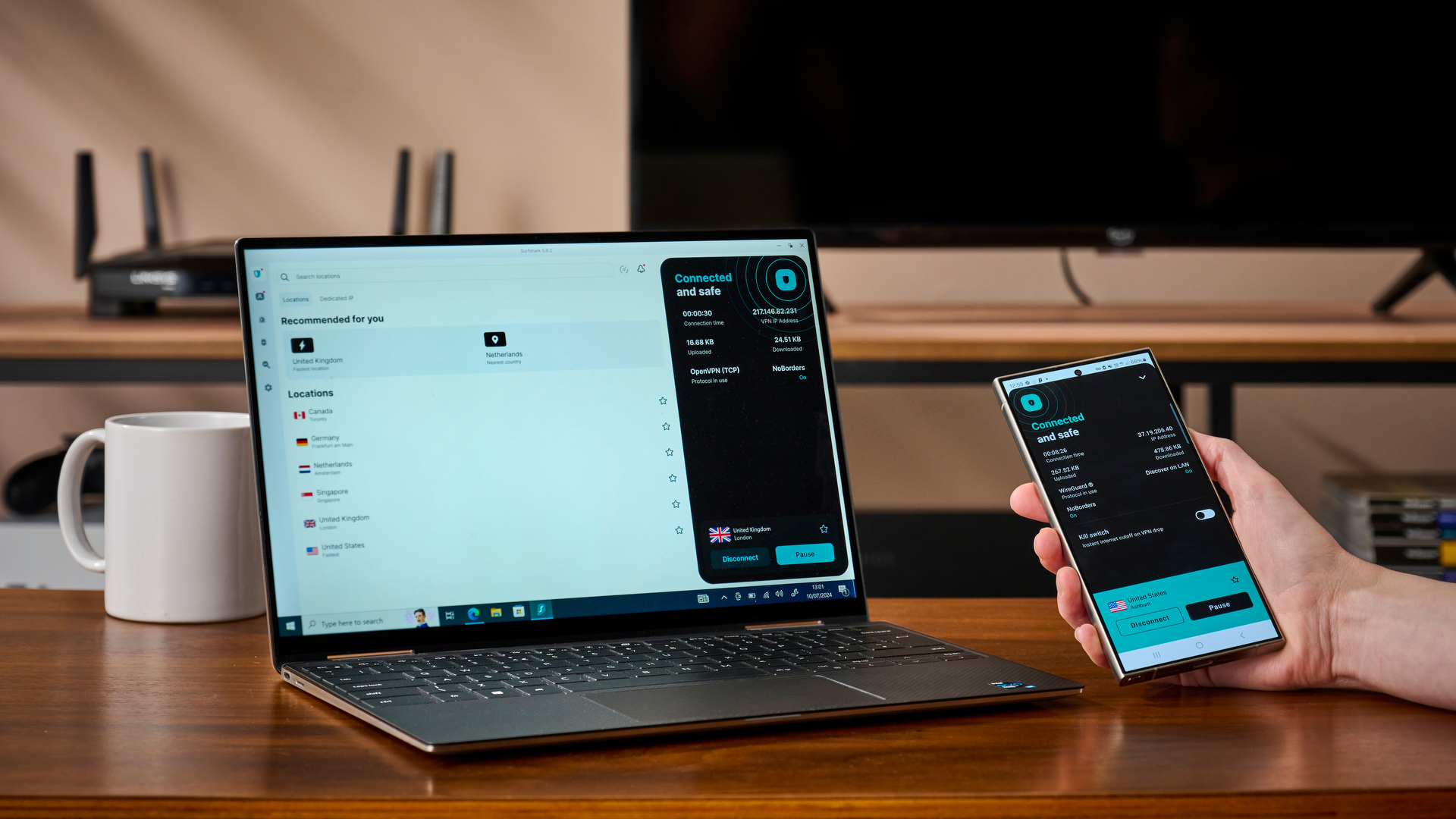
Today's best VPNs have huge server networks with locations all over the globe. The more servers a VPN offers, the more choice you have when it comes to unblocking streaming content.
However, some VPNs offer specialized servers that go beyond just connecting you to the internet. You might be wondering exactly what they’re used for and when to use them, so that’s exactly what I’m here to clear up.
Read on, and I'll explain how some of our favorite VPNs differ in terms of the specialized servers they offer (and how you can make the most of them).
Types of specialist VPN servers
A VPN server is a remote server you connect to that routes your browsing traffic to the internet through an encrypted tunnel.
When you connect to a VPN, all of your device’s internet traffic is sent through this secure tunnel to the VPN server before reaching the wider internet, and all the traffic you receive is sent back through that VPN server first.
This way, all of the other devices you communicate with on the internet see your VPN’s IP address, not your home IP address. It also ensures that nobody can see the contents of the traffic you’re sending until it reaches the VPN server.
Most VPN providers offer general-purpose servers, which are ideal for regular browsing, streaming, and everyday internet use. However, some VPNs also provide specialized servers that offer a unique, enhanced performance based on certain needs.
Obfuscated servers
Obfuscated servers disguise your VPN use so anyone monitoring your traffic can’t detect that you're connected to one. They’re specially designed so that, instead of accepting normal VPN traffic, they only accept requests that look like HTTPS traffic.
What’s great about obfuscated servers is that you don’t have to do any specific configuration – just connecting to them is enough to ensure that ISPs can’t detect your VPN usage.
They’re particularly useful in regions where internet censorship is rife, but can come in handy if you’re having trouble connecting from work or school, too.
P2P servers
P2P servers are specifically optimized for peer-to-peer file sharing. For the most part, this means torrenting.

Wondering which VPN is the most P2P friendly? Check out our guide to today's best torrenting VPNs.
The BitTorrent protocol is pretty bandwidth-intensive, so some VPN providers choose to offload that strain to dedicated servers with higher output network connections to ensure that P2P users get the best speeds possible while not degrading the service for the rest of their users.
Plus, you get all of the encryption and IP obfuscation necessary to keep yourself safe from ISP bandwidth throttling and copyright trolls.
Onion over Tor
Tor over VPN does exactly what it says on the tin. When you connect to one of these servers, your traffic is routed through the Onion Network, giving you an extra layer of encryption and allowing you to access TOR-only sites.
The real advantage here is that you don’t have to install any software like the Tor Browser, it’s all done for you as soon as you connect to one of these servers. It’s nice from an ease-of-use perspective, but it might be vitally important if you’re living in a regime with extensive digital censorship and you’re not able to get your hands on the actual Tor software.
Streaming servers
Streaming servers are high-speed servers optimized specifically for smooth HD and 4K streaming. These servers are designed to maintain consistent, fast connections, minimizing the amount of buffering you’ll notice even when streaming content at high resolutions.
Streaming servers also constantly update their IPs to bypass regional restrictions on popular streaming platforms like Netflix, Hulu, and Disney+. These platforms are continually trying to detect and block VPN connections, which means it’s necessary for VPN providers to stay one step ahead by dedicating hardware and networking capacity for streaming servers.

Which VPNs offer specialist servers?
Now that you’ve got a better idea of what specialist VPN servers actually do, it’s time to look at which VPNs offer them. The VPNs I’m recommending below are all great all-around VPNs anyway, but here’s how they differ in terms of specialist servers.
NordVPN
NordVPN is the total package. It packs obfuscated servers, P2P servers, and support for Tor over VPN.
It’s also lightning-fast, as our recent tests showed that its proprietary NordLynx protocol delivers speeds of around 950 Mbps on our 1GB connection. Even if you don’t need specialist servers, NordVPN is a great all-around service with tons of added security features, servers in over 100 countries, and a built-in anti-virus as well.
For only $3.09 per month, you can’t go wrong, but if you want to take it for a test drive before signing up for a subscription, the 30-day money-back guarantee has your back.
Surfshark
Surfshark has a set of obfuscated servers that automatically disguise your VPN use without any extra work, making it ideal if you’ve been blocked by a network admin.
It’s also just as fast as NordVPN when using the WireGuard protocol – and its OpenVPN speeds are outstanding, too. With 140 locations to connect to around the world, Surfshark is a truly global VPN provider.
Best of all, Surfshark allows you to connect unlimited devices to a single subscription so you’ll be able to cover all your whole household with one payment plan. Try it out today with a 30-day money-back guarantee.
Proton VPN
Proton VPN has P2P servers in a wide range of countries as well as support for Tor over VPN, but what sets it apart is its Secure Core servers.
Basically, Proton VPN has highly secure server farms all located in privacy-friendly jurisdictions, which then chain the connection to the location you actually want to use to connect to the rest of the internet.
It’s part of Proton VPN’s ethos of providing privacy-first VPN service, which you can try out for yourself with a 30-day money-back guarantee.
CyberGhost
Outstanding P2P server coverage makes CyberGhost a great choice for torrenting, but it's also got a wide range of streaming and obfuscated servers, too, if you’re not into P2P file sharing.
CyberGhost makes it all easy by giving you dedicated “profiles” that automatically connect to the best server depending on the activity you want to carry out: streaming, torrenting, or browsing the internet anonymously.
The 45-day money-back guarantee is especially generous – and gives you plenty of time to try the service in your own time.
Private Internet Access
All Private Internet Access servers are P2P enabled from the start, so you don’t need to worry about picking a specialist server just to torrent.
PIA also supports port forwarding, so you’ve got the best chances possible of connecting to other peers while torrenting. Even if a provider offers P2P servers, most don’t offer port forwarding. There are also a bunch of streaming servers available across Europe, Australia, and the US for all of your streaming needs.
If you’re not convinced, you can give it a test run with a 30-day money-back guarantee.







